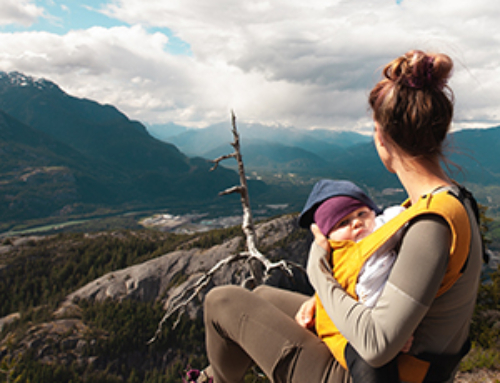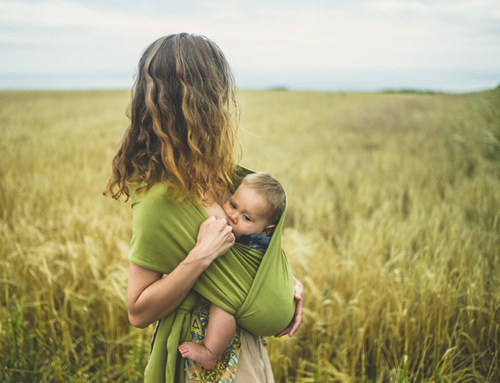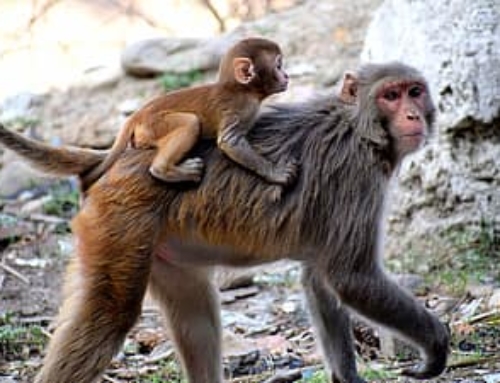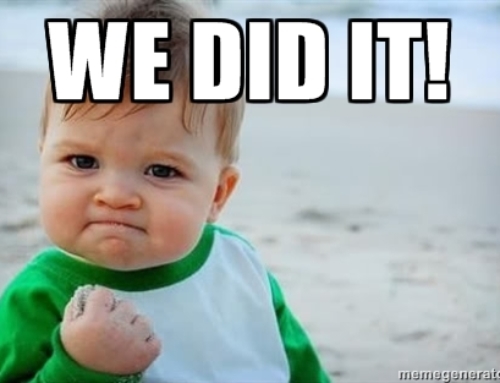By Eileen Joy of Live With Purpose
When Tracy reposted my blog from 18 months ago recently on Evolutionary Parenting I was struck by a number of things. So much has changed since then, and yet so much has stayed the same.
Of course that’s true. My children are older, and so am I, that much is obvious. However many other things have changed and my views on parenting have at once sharpened and expanded.
My children are now 6 and 7 years old. We are well out of the preschool years and excitingly being thrust into new years with different challenges and different rates of learning. One day we might be discussing magic tricks, and on another the way the pre-frontal cortex develops. It’s certainly different from reading “The Gruffalo” repeatedly or playing “Pat-a-cake”.
I’m still an Attachment Parent, that hasn’t changed. It seems odd to me that a lot of people consider AP as something for the baby or preschool years and don’t really give it that much thought beyond that. To me it is always fundamentally about the relationship. People can argue about definitions of attachment parenting all they like, but at the nub of it for me, it’s all about the relationship and respect. Without that you have nothing.
I don’t know precisely why, but the thought of the relationship being first always reminds me of this Maori proverb:
He aha te mea nui o te ao?
He tangata! He tangata! He tangata!
What is the most important thing in the world?
It is people! It is people! It is people!
I feel like I could say, instead of people, relationship, and the proverb would still be true. Indeed I feel that that is what it is saying. Relationships, respect and how we talk to one another. We could, for instance, attachment parent the world, in fact that’s what I believe we should be doing.
So where am I now, in my head, about parenting since I wrote that blog 18 months ago? I now cringe at reflect on some of what I said and realize that a lot of learning has taken place.
I talked about some women doing things “instinctively” and then I went on to say that “I ignored my instinct” about where to birth, and instead birthed at hospital instead of home. I then said this about making my son cry it out:
“And no my maternal instinct did NOT kick in. Well, it did, but the BOOK told me that that was just silly, that it would be hard, but that I should wear earplugs and try to ignore him. So I listened to the book and use earplugs.”
Why would those phrases give me pause, cause me to cringe reflect? Well, let’s just say my reading and thoughts on instincts have changed a lot recently.
I began to feel distinctly uncomfortable with people advising new parents to “use their instincts” or that all parents needed to do was “listen to their instincts” and you would know what to do. I felt disquiet. I knew that my instincts, based on what I wrote weren’t there. I remember feeling pretty stink whenever anyone had told me that. What do you mean, trust your instincts, I don’t have any.
That feeling, like a splinter in the brain began to eat away at me. I knew I wasn’t the only one. I knew that my feeling about instinct couldn’t be just me. So I decided to investigate just what instincts actually are.
So, I went to Wikipedia and found this:
“The book Instinct (1961) established a number of criteria which distinguish instinctual from other kinds of behavior. To be considered instinctual, a behavior must: a) be automatic, b) be irresistible, c) occur at some point in development, d) be triggered by some event in the environment, e) occur in every member of the species, f) be unmodifiable, and g) govern behavior for which the organism needs no training (although the organism may profit from experience and to that degree the behavior is modifiable).”
That gave me pause to reconsider the use of the word “instinct”. If it’s meant to be something that is innate, universal to ALL human beings, then why do we have a multi billion-dollar industry around babies? Why are we all doing things so differently? Surely if it was instinctive, irresistible as it were, we would all be doing it the same way? And that tied into why I felt awkward about what I was saying. I said instinct, truly, because I wanted to have one. You feel somewhat defective when you don’t have that gut that everyone else refers to. I liken my searching for it, to the look for the Holy Grail. It might exist for some people but it doesn’t exist for me, well, actually, what is MORE appropriate is that the Holy Grail does exist, except it looks different for all of us, and we do have to work to find it. What do I mean by that?
I study parenting. I mean that in a deeply serious way. I study my children, deeply. I study myself deeply. NONE of this comes instinctively. It is a process of constant evaluation, reflection and learning. It is all very, very conscious; I dislike parenting on autopilot. If I say “it’s instinctive,” in one fell swoop I am denying the hours of thought, pondering, tears and laughter that have actively gone into building this. I have consciously chosen to rewire my brain against the way I was parented. If I were to be bold, I would say I’ve gone against my personally programmed instincts. I’ve gone against parenting the way that hurts my inner child. I have worked very VERY hard at this, trust me, it’s not instinctive.
How do I do that? I read, voraciously. I read online, many, many blogs. I read people’s comments. I surround myself with a glorious online community of parents who think critically and challenge me every single day. They make me cry, they make me laugh, they frustrate the heck out of me at times, but they are, quite simply my tribe. I would not be the parent I am today without these people. We examine all parenting notions, critically, and sometimes, yup, we get it wrong. None of us is doing this instinctively (although I know some of my “tribe” would disagree with me on that J). We are all working very, very hard at it.
If you were to ask me what I think we need more than anything else to say to parents rather than find their instincts, I would say, find your triggers, and begin the journey of healing any hurts of your inner child. Work hard on learning all you can about yourself, about parenting and find a tribe of like-minded people. Look on parenting as a vocation. Study it. Study your children. Yes, part of the message about your children teaching you is true, but there are a lot of things they can’t tell you, and things you can’t tell them. You need your tribe. I need the tribe so I can scream at the tribe instead of my children, I need them so they can cheer me on when I feel low, and so they can tell me to pull my head in, with the deepest of love.
Tell new parents to embrace learning, to embrace interdependence, to learn to love and rely on other parents, and learn from them and their children. You don’t need to be an island figuring it all out by yourself.
Don’t tell them that parenting is instinctive. You’re telling them to look inside themselves for something that is not strictly instinct, and secondly, may not even be there. You’re telling them, even though you might not mean it, that they are on their own. Offer them a tribe, offer them your shoulder. Offer them a cup of tea and a place to rest their cares, even if momentarily. And if in that moment, you can help them find the confidence to be a gentler parent, then do so. Sometimes they just need an ear. Sometimes they are asking to learn from you.
We need our tribes, if anything has the potential to be instinctive, then surely it’s that.
No man person is an island.
He tangata! He tangata! He tangata!






Hi there. I’m an Anthropolgist and a mother who, like you, devours all the available literature on AP and all the blogs and pages on topics related. My parenting did not start at the beginning, due to the frustration of a failed natural birth that ended in an emergency c-section, lots of medical abuse and two months of PPD. My instincts were ‘born’ when the crazyness around me regarding the new baby ended and we were finally alone, just him and I, to get to know each other. Like an animal in the wild I learned from him, I learned to know him and I started feeling him as “mine” and feeling as a mother. I think that parenting can be an instinct if we would be in the ideal context of the ‘bon sauvage” where instead of receiving useless presents and being disturbed when you should be bonding, you would be surrounded by all the mothers in your tribe, who would guide you lovingly towards motherhood. That and the fact that you would have taken care of far many babies before holding your own, which is not the case in our indoors urban life. I feel identified with what you write, and I agree. Thank you for sharing your thoughts.
[…] If you are a new parent, you must be feeling overwhelmed or nervous, wondering how you are going to deal with parenthood. But do you know you have an important tool at your disposal that makes things easier? Yes, instincts. […]